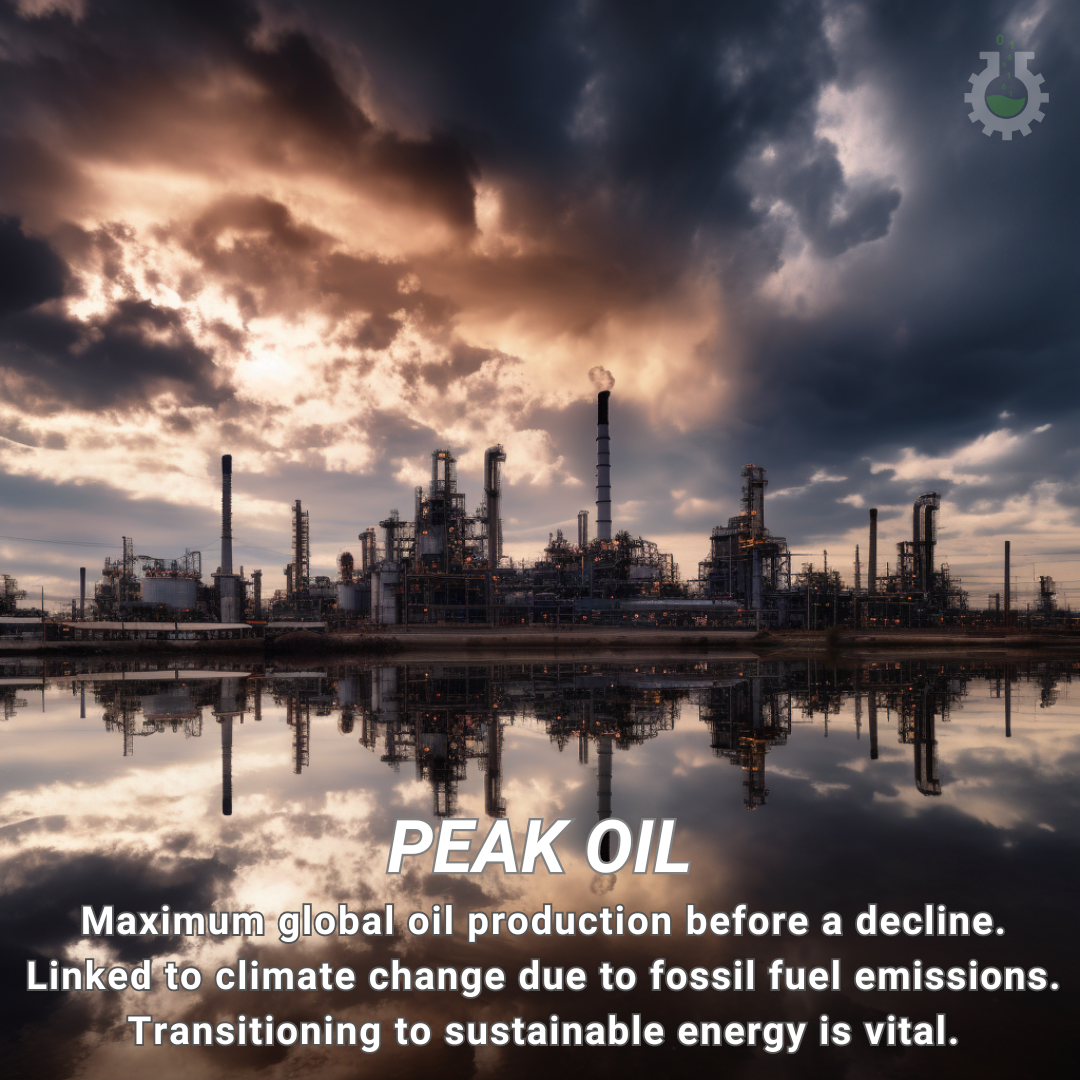January 30, 2024
Climate Change Poster Collection of the Day – Peak Oil
Book a Demo
Today’s Climate Change Poster Collection highlights Peak oil, the theorized point in time when the maximum rate of global oil production will occur, after which oil production will begin an irreversible decline. Although the notion of peak oil suggests a decrease in world oil production, this has not transpired as yet due to technological advancements in extraction techniques. The concept of peak oil was introduced by geophysicist Marion King Hubbert in what is now known as the “peak theory”. This theory proposes a maximum rate of worldwide crude oil extraction, which is then followed by a gradual decrease.
The conventional view of peak oil implies that as the expense of accessing new reserves rises, it will put pressure on existing dwindling reserves. However, technological advancements, such as hydraulic fracturing and enhanced surveying methods, have maintained oil production operations and ensured a constant global supply. These innovations have pushed the boundaries of what’s possible, allowing us to access resources that were previously unreachable and thereby delaying the onset of peak oil.
There are several factors that could trigger the phenomenon of peak oil. One such factor could be a drop in demand, potentially due to the emergence of more efficient technologies and alternative energy sources. This is not difficult to imagine in a world where renewable energy technologies are rapidly advancing and becoming more mainstream.
Climate change studies indeed advocate for a reduction in oil consumption and a shift towards renewable energy sources to avert disastrous climate impacts. These studies also bring to light the fact that peak oil is not just a matter of physical exhaustion of resources. It ties into broader factors such as declining demand and changing energy landscapes. As we innovate and find new ways to generate power, our reliance on oil diminishes, potentially leading to a peak in oil production long before the resource is physically depleted.
The continued declarations of peak oil, despite the sustained oil production, highlight the intricate nature of global energy production and consumption. It underscores that peak oil is a multifaceted issue, tied not just to the physical presence of oil, but also to our evolving technological capabilities, economic factors, and changing attitudes towards energy production and consumption. In conclusion, the concept of peak oil serves as a reminder of the importance of continuous innovation in the energy sector and the need for a more sustainable approach to power our world.
Discover an inspiring collection of climate change poster.



